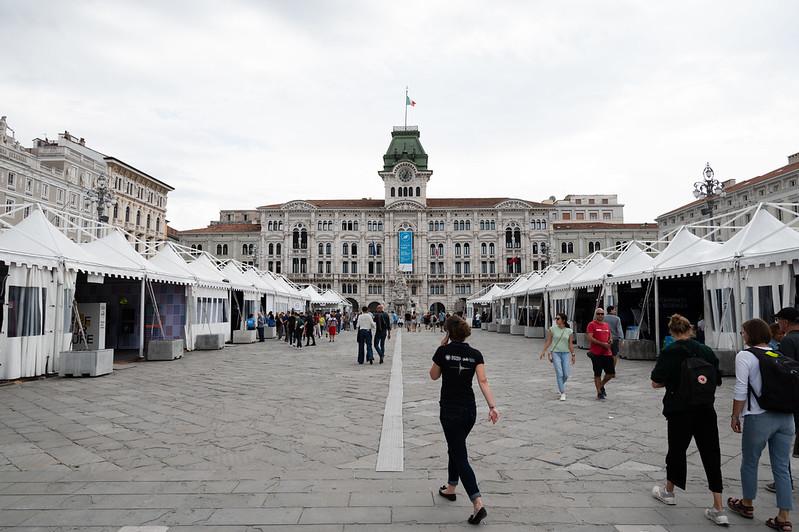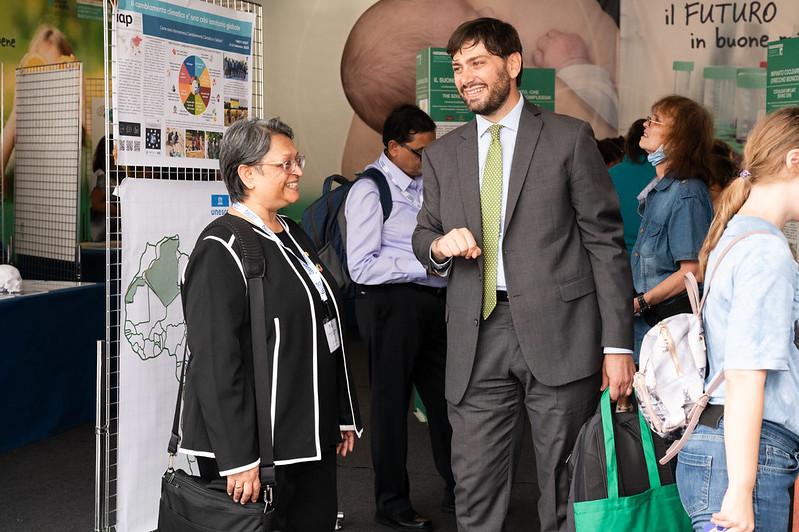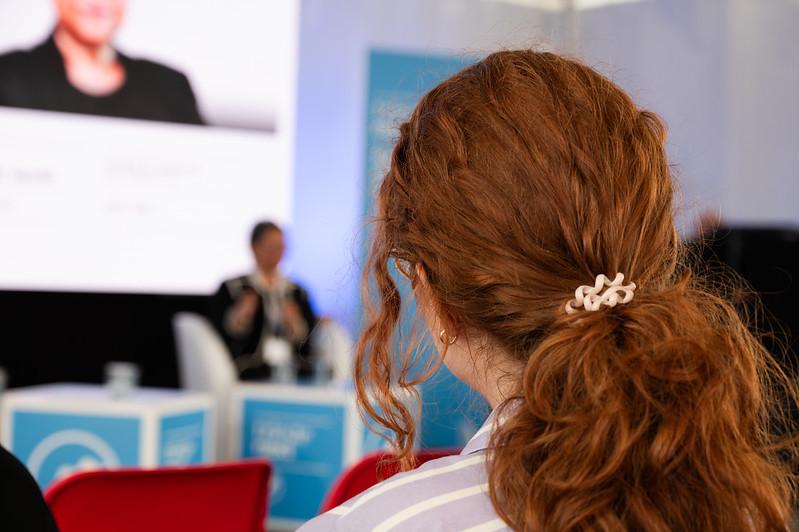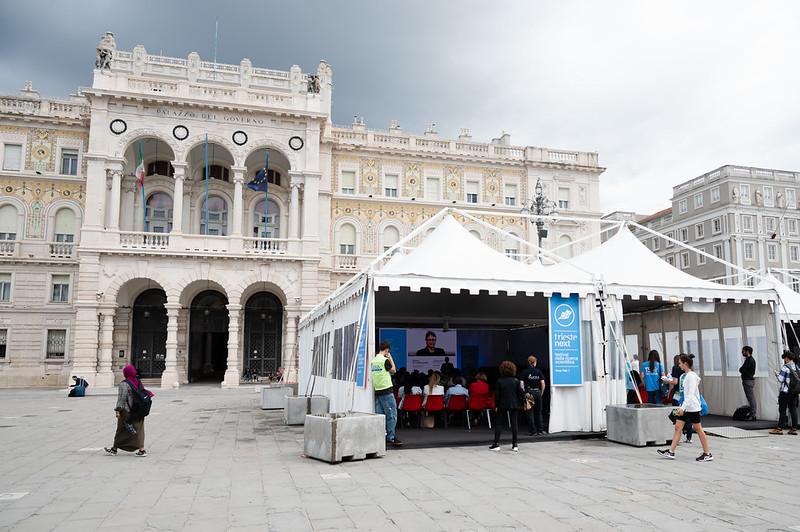Science is the product of humanity’s most brilliant collective imagination, said TWAS President Quarraisha Abdool Karim at her recent talk at Trieste Next in Trieste, Italy. And, she added, this is the source of inspiration for many of today’s scientists worldwide.
“Today as scientists, we actually are riding on the shoulders of giants—scientists who have come before us who think about what the world will need,” said Abdool Karim. “They were able to not just imagine, but take those ideas and translate them into something tangible.”
The event, titled ‘Science for a better world’, was part of the 2023 edition of Trieste Next. This international science festival brings many visitors to Trieste, Italy, every year. The occasion attracts scientists, journalists, professionals, policymakers, students and others interested in science, including schoolchildren. Abdool Karim’s talk was attended by 17 students from Deledda-Fabiani High School and 19 from Addobbati-Brunner Junior High School, both in Trieste. They were part of an audience of over 60.
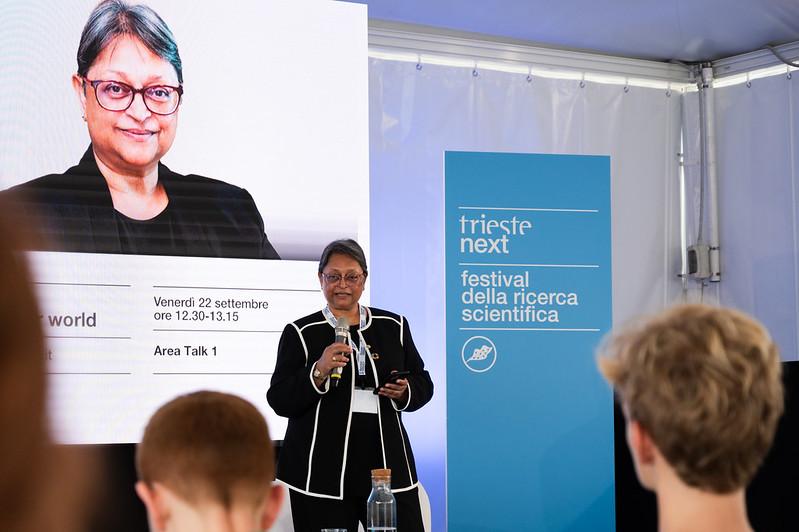
This year's Trieste Next, held 22–24 September, was themed ‘A new world: Science, culture and innovation for a sustainable future’. Abdool Karim’s talk also preceded a roundtable of TWAS Council members from the global South who discussed the importance of science to all pressing global challenges facing the world.
Abdool Karim emphasised the importance of imagination repeatedly in her discussion. And often, she said, the source of new ideas is younger generations who have the ingenuity to generate and pursue new ideas.
“I think younger people particularly, you have great imaginations,” she said to the students in attendance. “You get to think about what a wonderful world we live in, but also how we can make that world better, so future generations can also benefit.”
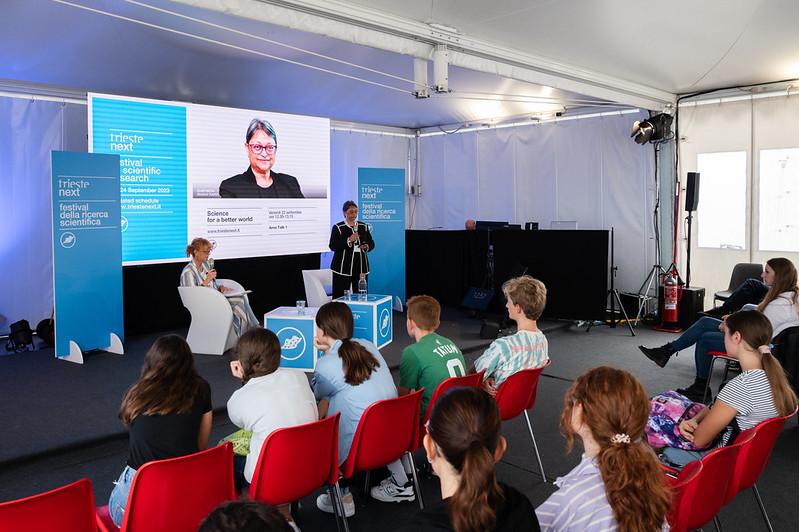
Most scientists, she elaborated, are in the profession because they want to leave behind a better world for humanity. They are typically engaged in the work of solving problems relevant to the world’s greatest challenges, such as disease. She pointed out that after COVID-19, knowledge about epidemiology has become more commonplace. Through measures to stem the virus’s spread and save lives, people have become more exposed to how epidemiological work can affect everyone’s lives.
“I think all of us, as much as we want to forget the last three years, remember the fear, uncertainty, and anxiety in our world as it just changed overnight,” she said. “And for about six months, we had this really incredible moment in history. So while we have this major rupture in our lives, we’re also reminded that we’re one planet, one humanity. We’re interconnected, we have a shared community, and we work together to find solutions.”
She expressed hope that some of the young people present would be inspired by the promise of science and find ways to contribute. “I’m looking forward to seeing what you do to make the world a better place,” Abdool Karim said. “This is the best way to invest in the future and show our appreciation for what we have inherited and leave a better world for generations to come.”
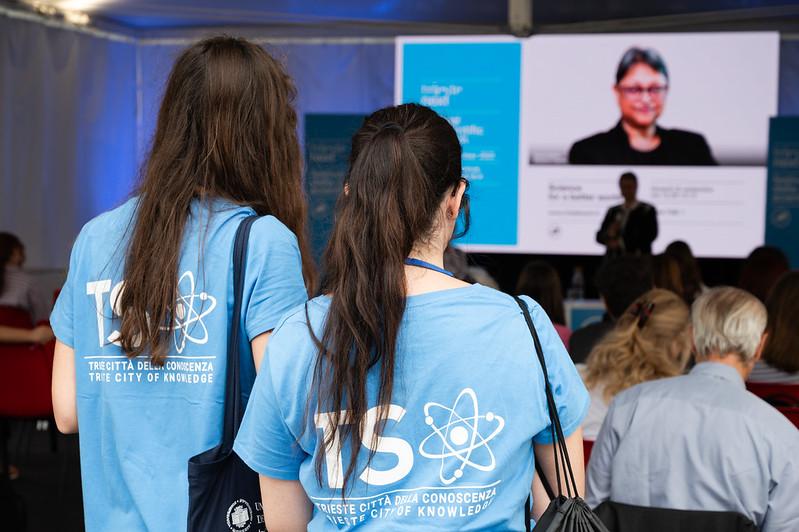
Answering a question from the audience about how science can help governments make evidence-based decisions, Abdool Karim stressed that the public will need access to scientific work that is being done.
“If you do the type of science that’s going to change the world, you have to talk to policymakers and key decision makers, including governments and donors,” she said. “And what I’ve learned is that as much as government officials will tell you we do evidence-based decision-making, they are elected officials, and they have a very broad constituency. [...] Their final decision has to take all of those constituencies into account.”
Which, she concluded, is why she likes to think of science diplomacy as extending beyond scientists and policymakers to include the public. “We don’t know everything as scientists—we are also learning. And our knowledge grows by debate and discussion, in fora like this where we can share what we know and what we don’t know. But it can’t just be in one direction.”
Sean Treacy
More photos are available here and on the TWAS Flickr page.
